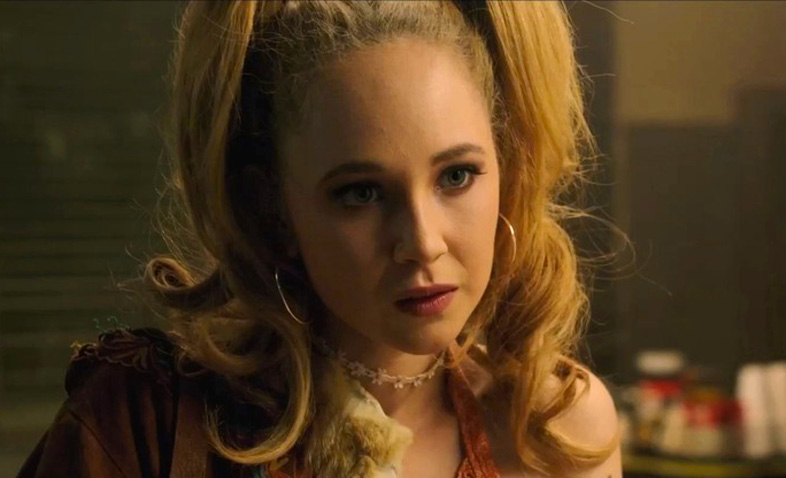 One of the most memorable lines from the early years of “South Park” was when Cartman claimed that all independent films are about “Gay cowboys eating pudding.” While “Safelight” doesn’t have cowboys or pudding, “A bullied disabled kid and a hooker with a heart of gold take pictures of lighthouses” would be a suitable alternative if one were to look for a quick line to generalize and ridicule American indie dramas.
One of the most memorable lines from the early years of “South Park” was when Cartman claimed that all independent films are about “Gay cowboys eating pudding.” While “Safelight” doesn’t have cowboys or pudding, “A bullied disabled kid and a hooker with a heart of gold take pictures of lighthouses” would be a suitable alternative if one were to look for a quick line to generalize and ridicule American indie dramas.
A bland and utterly predictable melodrama desperate to hide itself as a deft character study, “Safelight” would have made for a decent timewaster on TV, perhaps on Lifetime or Country Music Television (Hey, don’t knock CMT, “Crazy Heart” was originally produced by them before it won Jeff Bridges his Oscar), but as a theatrical feature it’s sorely lacking in both narrative and execution.

Following a by the numbers “Abused and downtrodden young couple finds a modicum of happiness in a cruel world through their affection for each other” premise, “Safelight” is about the friendship and the inevitably blossoming romance between Charles (Evan Peters), a physically disabled (nothing too “weird or unattractive” to turn the audience off, he just has a pronounced limp) aspiring photographer working at a truck stop in the middle of nowhere, and Vicki (Juno Temple), a misunderstood runaway trying to survive by selling her body to truck drivers, even though she’s perhaps the most attractive truck stop hooker in the world by a long margin. I get the feeling that this character wasn’t supposed to look like Juno Temple, going by the way the other characters aren’t instantly shocked by a girl with movie star looks in the middle of nowhere.
Anyway, the film opens with Charles bravely standing up to Vicki’s abusive boyfriend Skid (Kevin Alejandro) before Skid could rape Vicki in front of the truck stop. In order to return the favor, Vicki pulls a gun on three bullies from the movie bully factory who were harassing Charles. A friendship eventually develops between the two outcasts as they bond over trips where Charles takes pictures of lighthouses for a competition using his Vietnam martyr brother’s camera (The last bit in that sentence is not a joke). Charles and Vicki feel alive while they’re together. How do I know this? Because writer/director Tony Aloupis graces us with a bafflingly straight-faced rendition of an overused indie trope where repressed characters scream into the wind to express their freedom.

When it comes time for Charles and Vicki to take their relationship to the next level, Aloupis uses another trope, that of a character who used her sexuality to get attention her whole life and now can’t figure out how to engage someone else romantically so she uses crass sex as the go-to option and creates an awkward moment. The scene doesn’t work because of Aloupis’ clunky direction. Before they even kiss, Vicki goes straight to a blowjob attempt on Charles. Yes, I understand that the point of the scene is to show that Vicki doesn’t know any better, but I get the feeling that even a truck stop hooker would know that a genuine attempt at a relationship would include at least a couple of seconds of kissing.
One of the sole refreshing elements of the story is that the people in Charles’ immediate circle, his dying father Eric (Jason Beghe) and his free spirited boss Peg (Christine Lahti) are fine with Vicki’s choice of employment as long as she makes Charles happy. They don’t lose their shit in an attempt to pump the film full of more cheap melodrama. Unfortunately, the lack of exaggeration from that side of the story leaks over to a sub-plot about Skid harassing the young lovers for his share of Vicki’s hard-earned income.

Skid is a cartoon character, brought to life by a twitchy performance full of random annoying outbursts by Kevin Alejandro. The character sticks out even more as a dull cliché after the recent Kristin Wiig and Will Ferrell-starring Lifetime parody/cinematic trolling attempt “A Deadly Adoption” perfectly skewered the “tatted-up punk boyfriend to hot girl” archetype. Needless to say, Skid would have been a perfect addition to “A Deadly Adoption.”
This is the part of the review where readers usually expect the critic to state that even though everything about the film is lifeless, it’s at least saved from mediocrity by passionate and natural performances from the two young leads. Unfortunately we’re out of luck on that end as well. Evan Peters made a splash last year as Quicksilver in “X-Men: Days of Future Past,” but none of that charm transfers to his character here, while Juno Temple looks tired of playing yet another white trash character after “Dirty Girl” and “Killer Joe”.

Aloupis follows a fairly predictable visual language: Establishing shot, long shot, flat over the shoulders for pretty much every scene. That’s a shame, because a better director/DP team could have milked the isolation of the truck stop to visually comment on the characters’ loneliness. There are also some awkward editing choices that use jarringly unprofessional jump cuts. For some reason, the story takes place in the early 70s, but this choice was perhaps made to artificially give a fresh coat of gravitas to such forgettable material. [D]











